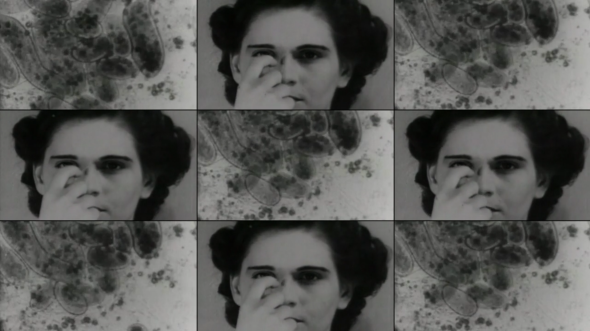Regardless of your preexisting interest in public health or food politics, once you learn a little about antibiotic abuse, you won’t be able to stop caring about it. Without antibiotics, many of the medical treatments that we take for granted would be impossible, and the speed and carelessness with which we squander these important drugs—on people who don’t need them and on livestock that really don’t need them—is downright infuriating.
But if you don’t know much about it, antibiotic misuse can be a confusing topic. Why does it matter if you take an antibiotic for a cold? Who cares if there are antibiotics in their food? Aren’t antibiotics a good thing?
Filmmaker Michael Graziano has made a documentary, Resistance, that explains everything you need to know about antibiotic abuse without once veering into the condescending tone of a PSA. In talking-head interviews with well-chosen, highly articulate experts, Resistance explains the fundamental reason the incorrect use of antibiotics is so dangerous: Every time we use antibiotics, we give bacteria another chance to develop resistance to it. Thanks to evolution and the ability of all bacteria to adapt, it’s always only a matter of time before any given antibiotic becomes ineffective against the infections it was developed to treat.
It only takes about 10 minutes or so to get across this basic message, but Graziano spends the rest of his film seeking to put a human face on his abstract subject matter. Resistance profiles several people who have personally suffered from or lost children to antibiotic-resistant bacteria. If it doesn’t sound like fun to spend time with people who have suffered medical catastrophes, well, it isn’t, but their stories are so gripping that you won’t care. Graziano is patient with his interviewees, and his lingering camera and tolerance for long silences enable him to reveal subtle emotional shifts rarely seen in documentaries.
It isn’t all pathos, though—Resistance also offers hope that change is possible. For instance, Graziano interviews a pig farmer from Denmark, where the government banned nontherapeutic antibiotic use in animal husbandry in the 1990s. The ban significantly reduced antibiotic use without lowering the productivity of the nation’s pork industry. This Danish case study indicates that restricting antibiotic use in American agriculture wouldn’t necessarily be the economic disaster farm lobbyists claim it would be.
I first saw Resistance about a year and a half ago and—full disclosure—moderated a panel discussion about it last year after a screening in New York. I’m thrilled that Resistance is now available to stream on iTunes and Amazon, and excited to premiere the clip below; it was cut from the final version of the film, but it will give you a taste of Graziano’s engaging style.
I hope Resistance will find a broad audience. After all, antibiotic resistance potentially affects everyone—the terrifying thing about antibiotic-resistant bacteria is that they can strike anyone under unexpected circumstances. Happily, almost anybody can take action to fight antibiotic resistance, by boycotting meat and dairy producers that use antibiotics on healthy animals, and by declining to take antibiotics for infections that are probably viral as opposed to bacterial—like that cold I mentioned above. In fact, after watching Resistance, you won’t even think of asking your doctor for antibiotics unless you’re really sick—which is exactly how they’re meant to be used.
